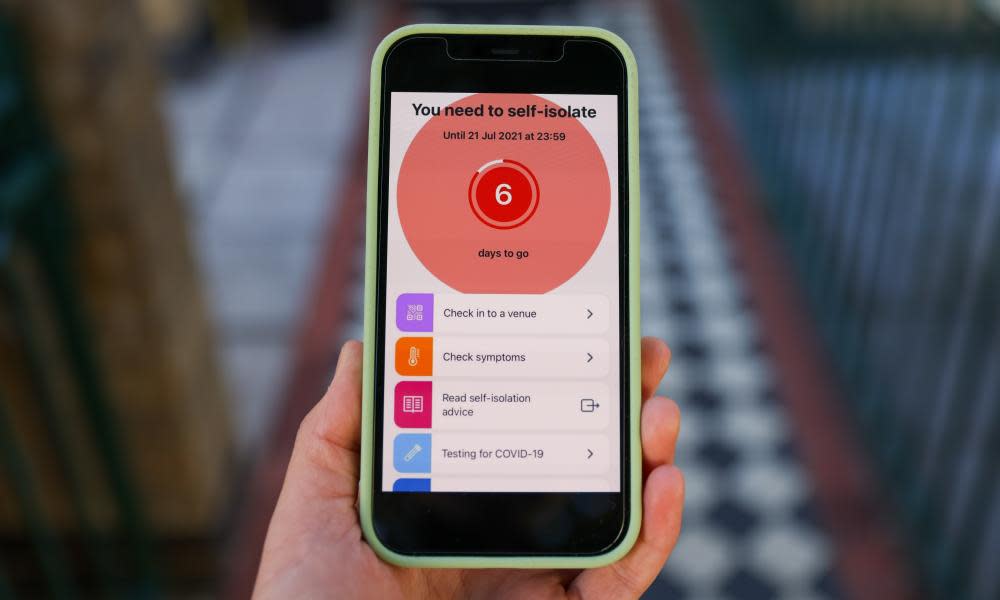A brief history of ‘ping’, from gun fights to the NHS Covid-19 app

Are you enjoying the pingdemic? Huge numbers of people are being told to self-isolate by the NHS Covid-19 app, which issues the instruction even if you have been sitting on the other side of a solid wall from an infected person. But what exactly is a “ping”?
From the early 19th century, “ping” was used onomatopoeically for a high-pitched metallic sound, and also for the sound of bullets flying overhead or ricocheting, perhaps borrowing some of the older sense of “ping”, to prick or stab (from the Latin pungere). From 1983, it could also mean a message sent from one computer to another to establish a connection, and so our modern use combines both.
Related: ‘Pingdemic’ effect: how different sectors in England have been hit
It might be annoying, meanwhile, when someone says they will “ping” you (to mean email or text, since 1990), but it is at least better than being shot with a gun, as a Utah newspaper reported in 1892: “When Gib Welsh, the Deputy Sheriff, tried to nab him Jake pinged him.”
More aesthetically, a horse may be said to “ping” if it runs or jumps especially well, and so in happier times a pingdemic might be a form of mass equestrian entertainment.
• Steven Poole’s A Word for Every Day of the Year is published by Quercus.

 Yahoo Movies
Yahoo Movies 
